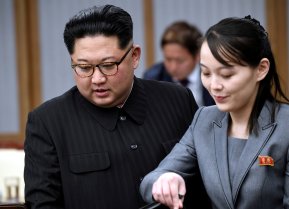South Korea’s Nuclear Education
If South Korea is inching toward a nuclear program, it becomes imperative for the U.S. to step up education and consultation to avoid the further untethering of the nuclear order
Alternatively, if deeper levels of info-sharing are meant to be instituted, that raises other questions: What are the barriers to information-sharing to overcome? What vetting processes and security clearances are needed? Is the Department of Defense willing to grant those clearances and share information in new ways with ROK officials? Are these to be one-off courses, with a new group cycling in each time, or is a core group of ROK officials repeatedly returning to new and deeper iterations of the course, building knowledge and trust with their American counterparts over time? Assuming barriers can be overcome and sustained rather than a cursory approach is adopted, such education and training could help build successive cohorts of nuclear operators that could help staff a standing body or permanent office, something akin to the NATO Nuclear Planning Group’s Staff Group.
Over time, the alliance could explore expanding the pool of candidates to include additional civilian defense, foreign affairs, and other civilian officials. In addition to developing a dedicated and continuous cohort of staffers for a standing NCG body or office, the alliance might explore creating a senior advisory body for the NCG. To extend the European analogy, this would be akin to the NATO NPG High Level Group (HLG). NCG’s senior advisory body would be composed of national policymakers and other experts from both Washington and Seoul. Together, they would discuss aspects of the NCG’s nuclear policy and planning and issues concerning the effectiveness of U.S. extended deterrence. It seems most likely that this would have to fold into existing standing bodies, such as the Extended Deterrence Strategy and Consultation Group (EDSCG), Deterrence Strategy Committee, and Korea-U.S. Integrated Defense Dialogue (KIDD).
The point is that process matters but only insofar as it contributes to more tangible outcomes. For some, the Washington Declaration was a short-term solution to a fundamental dilemma of ROK insecurity and fear of abandonment by the United States. It bought some space and time, yet ultimately, it is too little, too late. According to this view, the ROK indigenous nuclear genie is coming out of the bottle, if gradually and fitfully for now. That view may be correct. If so, it makes pursuing more in-depth education and consultation even more important. These steps could buy more time, reduce the chances of a further untethering of the nuclear order, and help the alliance navigate the rough waters ahead.
About the Author: Clint Work
Clint Work is a fellow and the director of academic affairs at the Korea Economic Institute of America.
Image Credit: Shuterstock.


